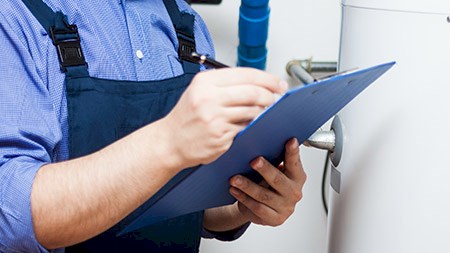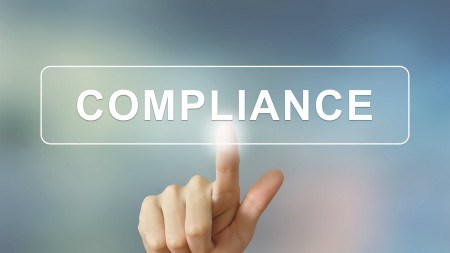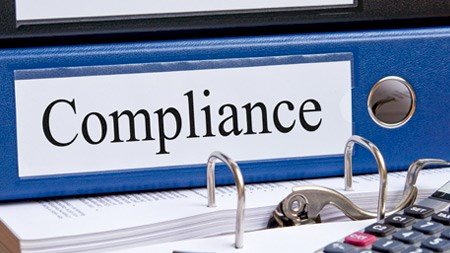Find out which types of clearance certificates you will need to obtain, before selling a property.
Rates Clearance Certificate from the Council
When ownership of a property is changing, the transferring attorney will need to apply to the council (local authority) for a rates clearance certificate. The council will usually require not only all rates and taxes to be paid up to date, but also the rates and taxes for the next four to five months to be paid in advance. Once the amount is paid in full, only then will the council give the transferring attorney the clearance certificate. Without the clearance certificate, the transfer will be rejected by the Registrar of Deeds and this will prolong the amount of time necessary to change the ownership of the property.
After registration, the council will refund the seller the amount paid in advance. The transferring attorney will notify the council of the registration, however, it is not their responsibility to get the refund back; it is ultimately the responsibility of the seller. Due to workloads at the council it normally takes several months to obtain the refund.
Levy Clearance Certificate
When selling a sectional title property the transferring attorney will need to obtain a clearance certificate from the body corporate or the managing agent. They will certify that all levies are paid in full. The certificate must be valid for a period beyond the transfer date. A reconciliation will be done by the transferring attorney between the seller and purchaser on the transfer.
Electrical Certificate of Compliance (ECOC)
It is mandatory for homeowners to be in possession of a valid Electrical Certificate of Compliance. This is a provision of the Electrical Installation Regulations which came into effect during May 2009, under the Occupational Health And Safety Act (No. 85 of 1993). When the property changes ownership this certificate must be produced in order to verify that the electrical installation in the property is in proper working order in terms of the law. It is the seller’s responsibility to obtain the certificate and repair any faults identified. The certificate has a validation period of two years however when any electrical work is done a new certificate needs to be obtained. Whilst the certificate covers things like distribution boards, wiring, earthing and bonding of all metal components (including antennae and satellite dishes), as well as wall sockets, light switches and the isolators of fixed appliances, it does not cover the fixed appliances themselves (geysers, stoves, motors, fans, under-floor heating).
Electric Fence System Compliance Certificate
If you’ve installed electric fencing as a security measure, you will need an Electrical Fence System Compliance Certificate. This is a separate certificate to the Electrical Certificate of Compliance(ECOC) as it falls under the provisions of a separate set of regulations: The Electrical Machinery Regulations of 2011 (also issued under the Occupational Health and Safety Amendment Act, No. 181 of 1993.). These regulations do not apply to electric fences installed prior to 1 October 2012 - unless you’re preparing to sell the property. However, a compliance certificate must be provided by the seller when the property changes ownership. A new certificate must be obtained whenever additions or alterations to the system have been made and, as with the Electrical Compliance Certificate, the electric fence system compliance certificate is valid for two years.
Plumbing Certificate of Compliance
In terms of clause 14(1) of the City of Cape Town's Water By-law, as from 18 February 2011, before a property can be transferred to a new buyer, the Seller of a property within the City of Cape Town’s jurisdiction, must submit to the council a certificate from an accredited plumber, certifying that:
- the water installation conforms to the National Building Regulations and this By-law;
- there are no defects that can cause water to run to waste;
- the water meter registers; and
- there is no discharge of stormwater into the sewer system.
The City Council is concerned that some private homes may be discharging wastewater into the stormwater system. This is a genuine cause of worry because worldwide it has been shown that, once polluted, stormwater systems can become a serious health hazard. Stormwater systems, unlike sewerage systems, are not designed to take organic material such as the leftovers from food preparation.
Although the Council is not allowed to withhold rates clearances as a result of non-compliance with this requirement, the By-Law states in Section 64 thereof that any person who contravenes or fails to comply with its provisions (amongst other things) is guilty of an offence and is, on conviction liable for a fine or imprisonment not exceeding five years or both such fine and term of imprisonment.
The onus is upon the seller to appoint an accredited plumber to provide the certificate and to do any corrective work needed and the cost of this exercise is for the seller’s account.
This legislation can and will delay house sales if homes are found to be losing water through their plumbing network.
To prevent this, the seller should do a water check himself:
- Firstly check the accuracy of the water meter.
- Fill a bath with ten litres of water from a standard 10-litre bucket.
- This should cause the calibrated dial on the water meter to move on one click (most dials reflect 10-litre increments).
- If the needle rises more than that, the City Council must be notified that their meter is faulty.
Once established that the water meter functions correctly:
Turn off all the taps in the house and any appliances that use water, including garden irrigation systems;
Check the water meter and make a note of the meter reading;
Ensure that all toilets and taps are not used for an hour or so;
Check the water meter again at the end of the hour. If the reading on the meter has moved up it means that you have a leak somewhere in the system and a plumber will need to come out to detect and repair it.
You can contact the Institute of Plumbing South Africa (IOPSA) for more information and also find an accredited plumber, on Tel: 044 873 6285 or Website: www.iopsa.org.za.
Gas Certificate of Compliance
As of 1 October 2009, Regulation 17(3) of the Occupational Health and Safety Act requires that any person who has a liquid gas appliance installed onto a property must have a Certificate of Conformity (COC) issued in respect thereof when selling the property. It does not matter if the installation of the gas appliance predates 1 October 2009. If such an appliance is present, so is the need for a COC, on the sale of the property.
The certificate must be issued by an authorised person registered as such with the Liquified Petroleum Gas Safety Association of Southern Africa (LPGAS), after he has inspected the installation, and is satisfied that it is safe, and leak-free. This certificate has a validity period of five years.
The cost of obtaining the Certificate, (and the cost of any work required to render the installation safe and leak-free) will be for the Seller's account.
For more information, you can contact the Liquified Petroleum Gas Safety Association of Southern Africa (LPGAS) on Tel: 011 886-9702 or Website: www.lpgas.co.za. To find an Authorised Gas Installer, contact The South African Qualification and Certification Committee for Gas (SAQCC) on Tel: 011 285 0038 or Website: http://saqccgas.co.za.
Beetle Infestation Clearance Certificate
The beetle clearance certificate has become standard practice (although not mandatory) and is often a condition written into the sale agreement in coastal areas, however, a certificate is not usually required for sectional title properties or for properties situated inland where beetle and woodborer problems are less common. Banks and insurance companies will require the certificate is commonly known infested areas when a property is transferred to a new owner. These certificates are normally valid for three to six months.
This article originally appeared in Property Power 11th Edition Magazine. To order your copy at the discounted price of R120 click here.



